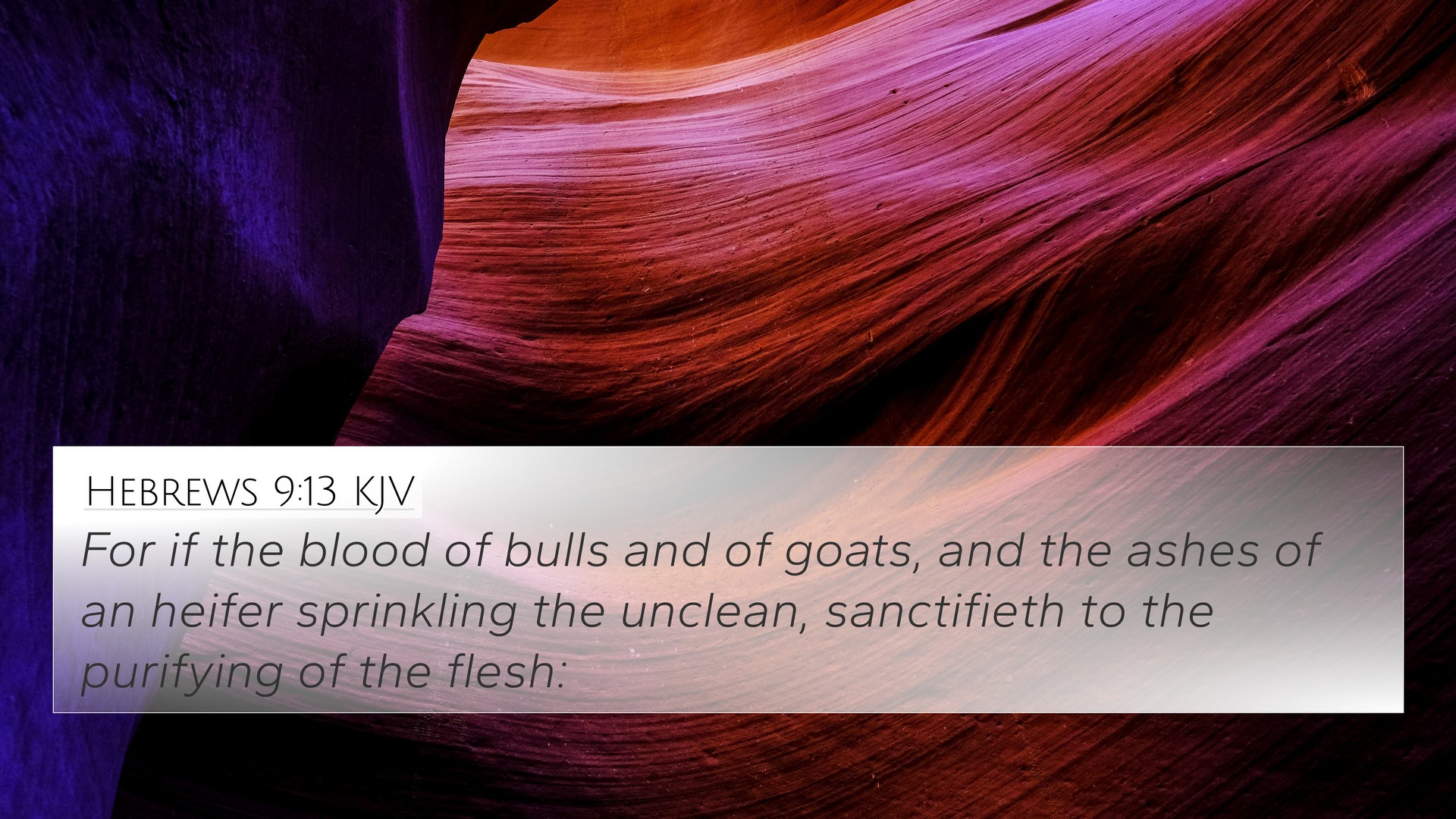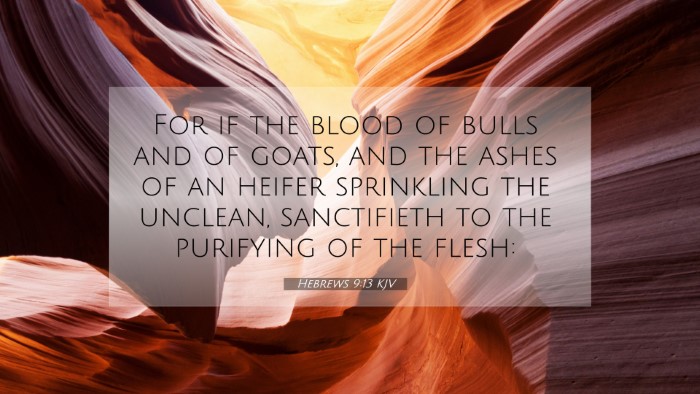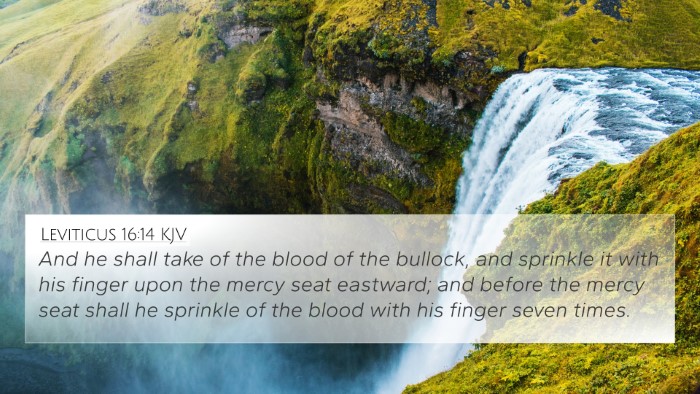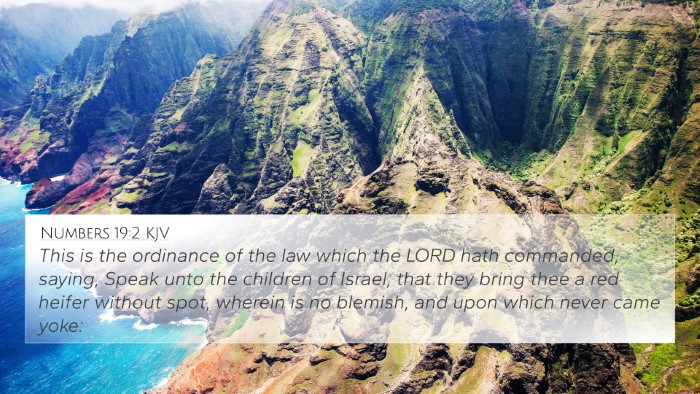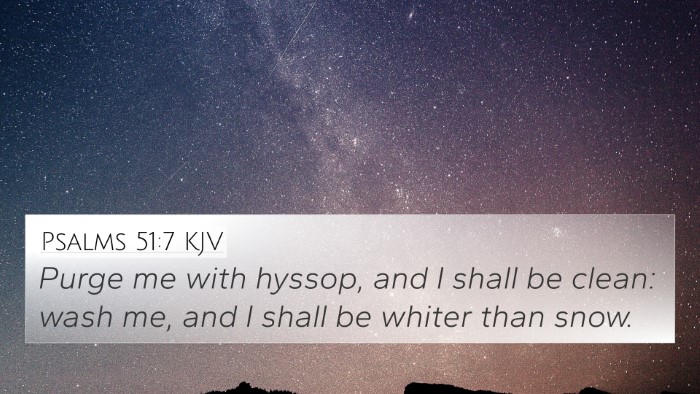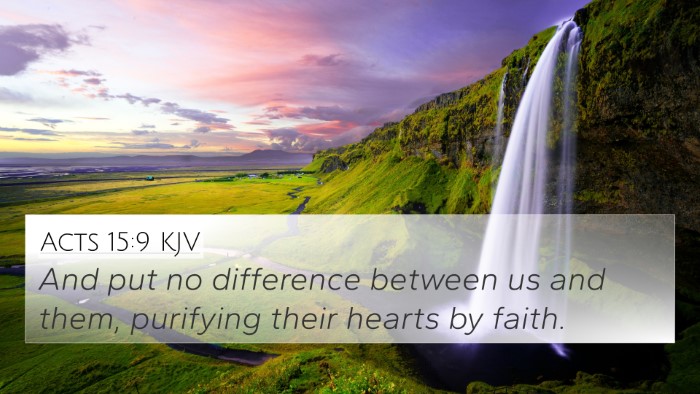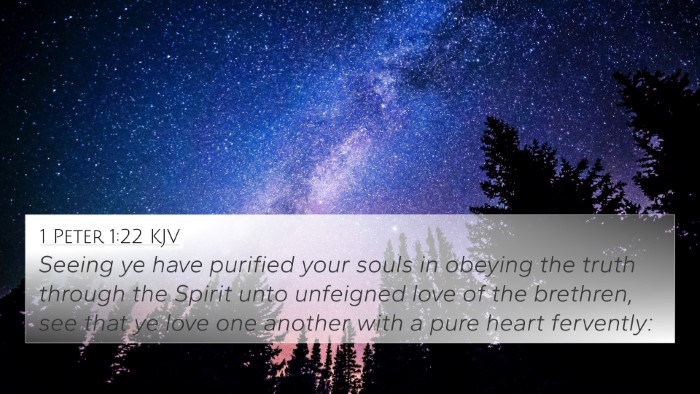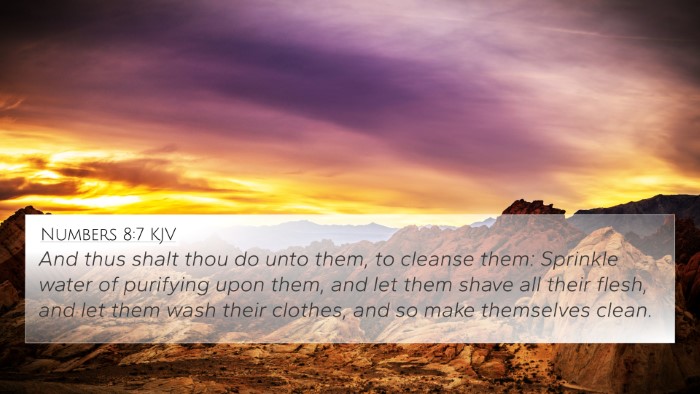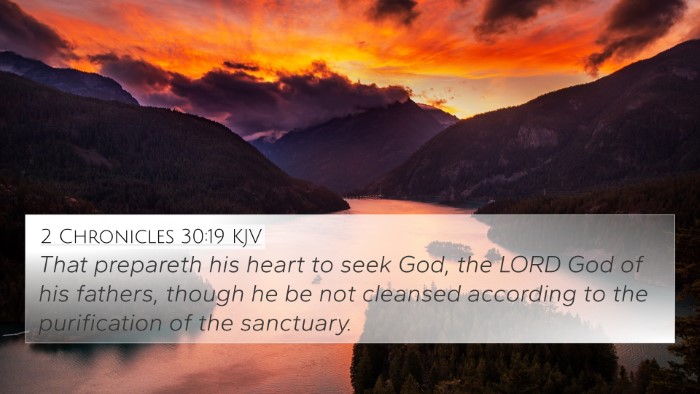Understanding Hebrews 9:13
Hebrews 9:13 states:
"For if the blood of bulls and of goats, and the ashes of a heifer sprinkling the unclean, sanctifieth to the purifying of the flesh."
This verse discusses the sacrificial system of the Old Testament, highlighting the significance of blood sacrifices for ceremonial purification. Public domain commentaries illuminate several key aspects of this scripture.
Summary of Commentary Insights
Matthew Henry: Henry emphasizes that the blood of animals, though significant in the old covenant, served merely as a foreshadowing of the ultimate sacrifice of Christ. This purification mentioned is external, pointing toward the need for internal cleansing, which is fulfilled through Christ’s atonement.
Albert Barnes: Barnes speaks to the limitations of the Levitical sacrifices, noting that while these sacrifices ceremonially purified, they could not effect genuine spiritual cleansing. Thus, the author of Hebrews draws a contrast between the ritualistic and the transformative, indicating the necessity of a more perfect sacrifice.
Adam Clarke: Clarke highlights the dual symbolic meaning of the sacrifices. He notes that while they represent a form of justification and ceremonial purity, they ultimately serve as a type pointing toward the redemptive work of Jesus, whose sacrifice brings real purity and salvation.
Key Themes and Insights
- Foreshadowing of Christ: The Old Testament sacrifices foreshadow Christ’s ultimate sacrifice, which fulfills and surpasses the old covenant.
- External vs Internal Purification: The verse illustrates the need for deeper, internal purification, which is achieved through faith in Christ.
- Limited Efficacy of Animal Sacrifices: The blood of animals served a temporary purpose but could not bring true peace with God.
Bible Verse Cross-References
To deepen our understanding of Hebrews 9:13, here are relevant cross-references:
- Leviticus 16:15-16: Discusses the Day of Atonement and the sacrificial system.
- Hebrews 10:4: States that it is impossible for the blood of bulls and goats to take away sins.
- 1 Peter 1:18-19: Highlights that believers are redeemed with the precious blood of Christ, as of a lamb without blemish.
- Romans 3:25: Describes Jesus as a sacrifice of atonement, displaying God’s righteousness.
- John 1:29: John the Baptist declares Jesus as the Lamb of God who takes away the sin of the world.
- Ephesians 1:7: Proclaims that in Christ we have redemption through His blood, the forgiveness of sins.
- Hebrews 9:22: States that without the shedding of blood, there is no remission of sins.
Thematic Bible Verse Connections
This verse’s themes connect to several other scriptures, contributing to an inter-Biblical dialogue concerning the necessity and power of blood in atonement:
- Exodus 12:13: The Passover lamb's blood spared Israelites from judgment.
- Isaiah 53:5: Prophecy of Christ bearing our transgressions and being pierced for our iniquities.
- Revelation 1:5: Declares Christ as the one who loved us and washed us from our sins in His own blood.
How to Use Bible Cross-References
Understanding connections can enhance one's comprehension of the Scriptures. The following methods can assist in a cross-referencing Bible study:
- Bible Concordance: Using a concordance to find terms and themes linked across different verses.
- Topical Studies: Engaging in studies around specific themes such as atonement, prophecy, and redemption.
- Comparative Analysis: Analyzing how various authors draw connections in their letters, such as Paul’s epistles versus the Gospels.
Conclusion
Hebrews 9:13 serves as a foundational verse in understanding the theology of sacrifice in both the Old and New Testaments. Through the examination of public domain commentaries and relevant cross-references, one can appreciate the depth of Scripture and the coherent message of redemption it presents.
